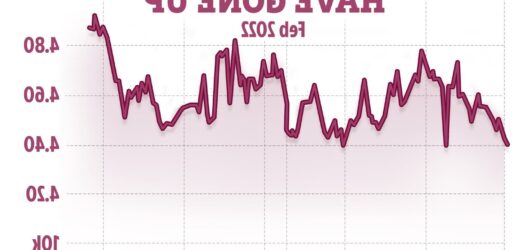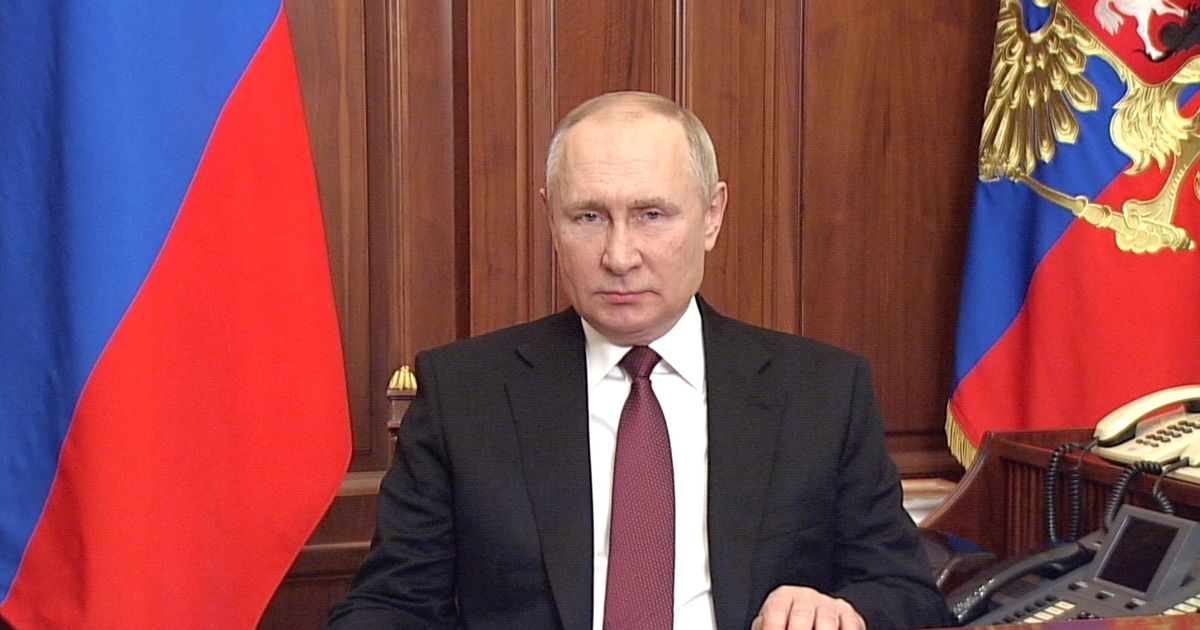ENERGY bills could rocket to £3,000 as the Russia and Ukraine crisis threatens the UK's supply of fuel.
Martin Young, equity analyst at Investec, has said the average energy bill could hit £3,000 by October
The prediction would heap more misery on households who are already battling a cost of living crisis.
In a note, Investec's Martin Young said: "The jump in electricity and gas prices of recent days has sent our October tariff cap estimate soaring above £3,000."
He said this forecast was based on prices remaining at today's levels for a sustained period of time.
Energy bills are set to increase by £693 in April when the new energy price cap comes into effect.
It will push the average household bill up to £1,971.
Most read in Money
COUNTING THE COST How Ukraine war could affect YOU – rising beer, food and petrol prices
Fears for petrol and energy prices after Putin declares war on Ukraine
How to get the £150 council tax rebate paid into your bank account first
Aldi is giving away FREE nappies to shoppers – how to get them
The price cap is set to rise again in October, and it is currently expected to reach around £2,200.
But experts have now warned that this week's spike in wholesale prices could see costs escalate even further.
The wholesale price of energy jumped to 318p per therm this afternoon. It is an increase of 87% since Monday.
And it could go up further – soaring by 20 times to 1,000p (£10) per therm in a worst case scenario, meaning households energy bills could spike.
Experts have said there is no chance of the UK's energy supply being cut off entirely or of the country running out of fuel.
But rising wholesale prices will still be passed on to UK households, putting more pressure on families which are already battling a cost of living crisis.
Russia is one of the world's largest oil and gas producers, supplying Europe around 40% of it's gas.
While Britain only imports around 5% of it's gas from Russia, the UK relies on pipelines that run through Belarus, Poland, Ukraine and into Germany.
But added that unless there was a "sharp and significant decline" in wholesale prices, then the cap was likely to jump in October.
Young said: "This could be devastating for UK households with elevated fuel poverty and an 'eat or heat' dilemma.
"The political crisis will intensify and government will need to go further than current measures and be more targeted."
What is the price cap?
The energy price cap is set based on wholesale costs in the previous six months.
The cap set to come into effect in October will be based on average prices between February 1 and July 31.
The current price cap is based on gas costs just 126p per therm – less than half of the price it sits at today.
And Ofgem now has the power to review the energy price cap more regularly, which means Brits could endure more than two prices hikes to their energy bills this year.
Young warned that rising prices are not just a problem for consumers.
As prices soar, more customers are likely to not be able to pay their bills, which is a solvency risk for providers.
It could mean suppliers with weaker balances could be risk of collapse if too many of their customers can't pay their bills.
Last year, more than 20 energy providers were forced to cease trading as the energy crisis started to unfold.
It is feared that the tensions between Russia and Ukraine could force prices up further.
The situation is so dire that the UK government has stepped in to help households across the country.
In April, millions with get a £150 council tax rebate and a £200 refund on energy bills will follow in October.
But it's not just energy bills that are set to rise. Petrol prices, groceries and beer are all likely to go up in the coming months.
Inflation has already hit a 30-year high of 5.5%, pushing many households to the brink.
It is expected to hit 7.25% by the spring too.
As a result, the Bank of England is expected to hike interest rates multiple times this year – as this can help to curb inflation.
But it can also add to outgoings for households, particularly the 2million homeowners with a variable or tracker mortgage.
Recent interest rate hikes have already added up to £700 to annual mortgage repayments for many households.
We pay for your stories!
Do you have a story for The Sun Online Money team?
Email us at [email protected]
Source: Read Full Article







